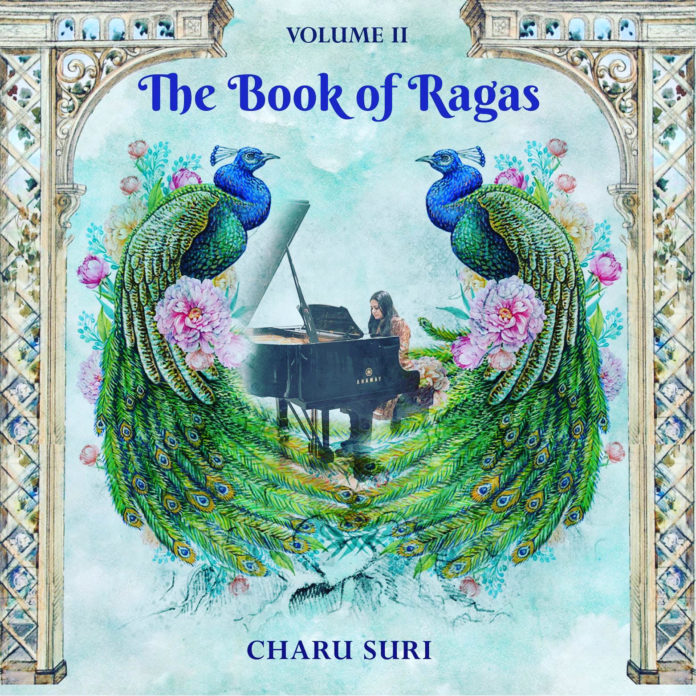Charu Suri, an Indian jazz musician from Weehawken, has released her latest album, “The Book of Ragas: Volume II,” and is auctioning digital copies of the cover illustration and songs from the album as non-fungible tokens (NFTs).
NFTs, according to CNBC, can be bought and sold like physical assets, but blockchain technology allows the ownership and validity of each to be tracked.
Suri is known for blending Sufi music, traditional devotional prayer music based on Sufi Islam and its poems, and jazz to create fusion tunes.
Experimenting with NFTs
NFTs can include videos, digital artwork and more. Suri’s first NFT includes ownership of a digital copy of the fourth song on the album, “Aaj Rang Hai” or “Today There is Color” and a digital copy of the album art. It comes with a private concert and signed copy of the album.
While the song and the art can be copied endlessly, the NFT represents ownership of the original pieces, verifiable by the blockchain. It’s similar to the notion that anyone can buy a print of a famous painting, but only one person owns the original.
Suri said she spent a lot of time designing the concept behind the cover illustration, which was brought to life by Upasana Arsani who also did the cover for the first volume of “The Book of Ragas.”
“On that art cover is myself on the keyboard surrounded by two peacocks with all the beautiful details around it,” Suri said. “I just wanted it to be very symbolic because the peacock, the national bird of India, is very Eastern, while the piano is obviously a Western instrument created in Italy. In one image I wanted to convey what ‘The Book of Ragas: Volume II’ is.”
Winner, winner, chicken dinner
The NFT auction was won by a user known as ‘@Dab’ for approximately .1 Ethers, a digital cryptocurrency that currently equates to approximately $3,279. The user now owns the original digital copy of the song and digital copy of the cover art, both backed by blockchain.
But the original artist maintains the copyright and reproduction rights to both pieces and can arrange to receive a percent of the profit every time the NFT is resold. The winner has not revealed his or her identity yet, leaving the additional prizes of the personal performance and signed album unclaimed.
More NFTs will be auctioned off for the other songs on the album.
“I think NFTs come as close as you can to actually having investors,” Suri said. “If you have people who are interested in your work, you can actually make money for it. It’s still in the infant stages for artists, but I think it can only grow and bring legitimate and regular earnings.”
Pandemic influences
“The Book of Ragas: Volume II” was written during the pandemic.
“This ended up being all morning ragas,” Suri said. A raga is a modal scale, usually played according to the time of day.
“They’re all morning ragas because during the pandemic, everyone in my house was working from home,” Suri said. “I found myself getting up earlier and earlier to just be at peace and have some clarity.”
Suri became fond of mornings because it was the only time when nobody was awake.
“I just needed that quiet time,” Suri said. “So I ended up listening to so many morning ragas to get me through it.”
A shift in pace
“Usually, my work is done at night,” Suri said. “‘The Book of Ragas,’ if you look at it, are all afternoon or evening ragas. Generally, the morning ragas are energizing, they have a sense of more of an urgency to them. Evening ragas are very calming. They almost put your body to a state of rest when you play it. It really does make a difference.”
She went on, “Sankarabaranam, which is track three, is basically the Ionian equivalent to a major scale. They all have that inherent pulse, that energy, that kickstarts the day. I feel they’re really different if you pay attention.”
In the first iteration of “The Book of Ragas,” Suri performed as part of a classical western jazz trio, which includes a piano, a double bass, and drums, as well as vocals. This new EP includes Suri on piano, Jesse Gerbasi on the vibraphone and drums, and Falsa on vocals, also known as Umer Piracha.
“Both of these performers just really shine,” Suri said. “Without them, there is no Book of Ragas. I’ve done piano versions of it in concert, but to get the full experience, you have to listen to the whole thing. They really stepped up to the plate on this.”
In touch with fans
According to Suri, being able to perform in front of a live audience was exhilarating after creating music and performing for fans virtually kept Suri going during the stay-at-home order.
“It wasn’t just good, it was great,” Suri said of reconnecting with fans. “I did a whole Miami tour. We had a full house, and people were wearing masks, some weren’t. We, the whole band, wore masks because I don’t take chances with things like that. But the audience was there, it was real. The audience clapped and cheered. We had conversations. We exchanged contact information. It brought tears to my eyes because I hadn’t had that in so long, neither had my band members.”
And Suri has more performances planned for this year. She will be part of the virtual version of this year’s Southcoast Jazz Festival in Toronto from October 15 to 17. For more information, go to southcoastjazz.com.
She’s also headed back to the stage at Carnegie Hall on November 13. For tickets visit carnegiehall.org/Calendar/2021/11/13/Raga-Jazz-and-the-Art-of-the-Songbook-0800PM.
For updates on this and other stories, check www.hudsonreporter.com and follow us on Twitter @hudson_reporter. Daniel Israel can be reached at [email protected].






